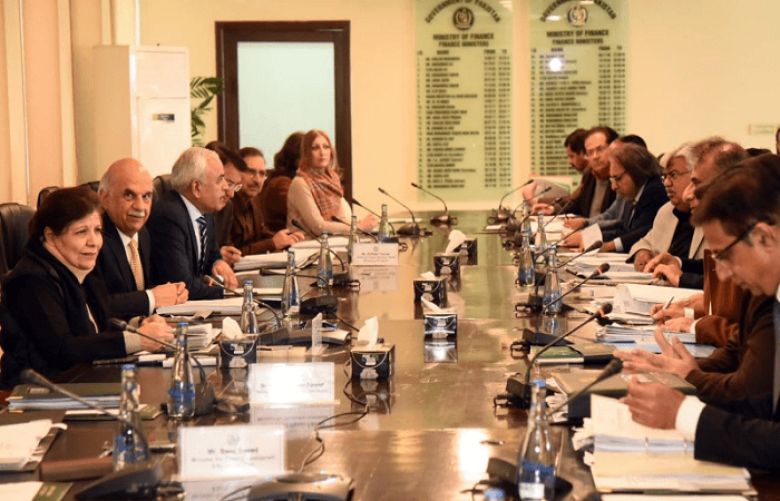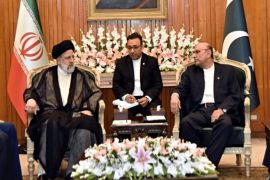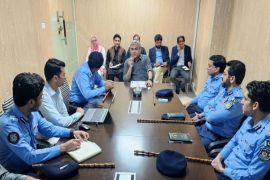Amid continuous unrest in Gilgit-Baltistan for almost a month over a wheat price hike, the Economic Coordination Committee (ECC) of the Cabinet on Thursday agreed to continue providing subsidy to the people of the region by slashing budgets of some major ministries in view of strict IMF conditions on subsidies.
The meeting, presided over by caretaker Finance Minister Dr Shamshad Akhtar, also approved the transition from the London Inter-Bank Offer Rate (Libor) to Secured Over Night Financing Rate (SOFR) in electricity contracts.
The meeting discussed the issue of a sustainable plan for the price rationalisation of subsidised wheat in Gilgit-Baltistan. The people of the region have been protesting over the price increase for almost a month as the federal government scaled down wheat subsidy.
The GB government had an understanding with the federal government to gradually increase the wheat price to Rs52 per kg to adjust the subsidy impact, but when it increased the rates to Rs36 per kg from about Rs20 per kg, protests erupted in the entire region. The withdrawal of full subsidy would mean an additional burden of more than Rs10bn on the GB government, which, in any case, relies on federal financing to run its affairs.
The Ministry of Finance explained that it could not extend subsidy out of budget due to strict IMF conditions. The only option was to make technical supplementary grants by diverting funds from other ministries having large part portfolios.
The ECC also approved a summary of the Ministry of Power regarding transition to the SOFR for interest calculation from Libor, which came to an end on June 30 last year in the international financial market. Under a decision of the UK’s Financial Conduct Authority, the Libor system of benchmarking financial transactions has already expired on June 30 and replaced with the SOFR system with the approval of the Federal Reserve’s Alternative Reference Rate Committee (ARRC).
The Power Division had contracts with foreign private contractors that required to transition to the new system, but Chinese investors had some reservations. The Power Division had proposed that project lenders of independent power producers and independent transmission companies should be allowed to adopt SOFR as a replacement for USD Libor on the basis of term SOFR plus applicable CAS and daily SOFR plus applicable CAS.
The meeting approved a series of supplementary grants. For example, it approved a supplementary grant of Rs38.856 million for Institutional Reforms Cell from the Cabinet Division and for import of Sahiwal Bull from Pakistan as semen donors for National Artificial Insemination Programme from the Ministry of Commerce.
The ECC approved a Rs1.59bn supplementary grant to the Ministry of Finance for rehabilitation of flood damaged rural roads in Khyber Pakhtunkhwa through counter value fund deposited under Japanese grant aid, and provision of clean drinking water in Model Areas UC 99, 100 and 101 Lahore through counter value fund deposited under Japanese grant aid.







